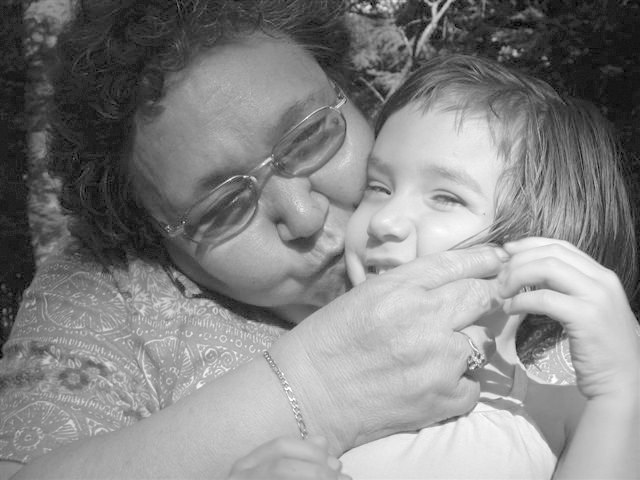
They just weren’t going to wait any longer. A group of Chisasibi Anglicans hoping to see more Cree priests and deacons in their church is forcing the archbishop’s hand.
“It’s very important because it’s been a long time since any native people have been through the process that we’re going through right now,” said Jimmy R. Fireman.
Fireman is a lay reader and treasurer for the Anglican Church. He says the push to get more Crees ordained is a way for locals to have a bigger say in church business.
The move started last winter when some of the locals started questioning the lack of ordained Cree deacons and priests. Many had been lay readers for years and they felt they were qualified to move up in the ranks, but didn’t necessarily know how to go about it.
They also wanted to sit on the various committees and have their voice heard.
“Nobody really went after it,” said Fireman. “The community always thought that in order to be ordained you have to go through four years of college and three years of seminary. In this case some of them have been working for the church for 40 years. We didn’t think it’d happen soon.”
There are three steps to the process. First, the vestry nominated four elders for priest, and two for deacon.
Once the community agreed on the nominations, the elders met with the Advisory Committee for Postulant Ordination (ACPO) to conduct interviews, look over letters of recommendation, and evaluate their qualifications.
When the rigorous process is through, the committee will either recommend or reject the candidates and then passes that along to Archbishop Caleb Lawrence.
Clifford Bearskin, Samuel Bearskin, Abraham Cox and Steven Pepabano were recommended by ACPO as priests. Eliza Webb and Annie Herodier were recommended by ACPO to be deacons.
“There were more Cree priests 25 or 30 years ago than there are today,” said Douglas McNaughton, the coordinator of ministries for the church in Chisasibi. “That’s the most wonderful thing about all
the people here. Their spiritual faith is so incredibly strong it’s affected generations and generations.”
The shift from many Cree priests 30 years ago to “southern” priests came out of what the archbishop calls necessity.
“Look at the leadership in the community generally,” said Archbishop Lawrence. “[Look at] the kind of Chiefs who were selected by the people. They were older, selected on the basis of the fact that they were good hunters, knew the land, were seen as upright honest people, and they knew their people.
“Then Hydro came into the north and I think that old-style leadership wasn’t able to cope. They tended to go to younger leaders, people who didn’t have the accumulated wisdom, but they understood how to negotiate with people of another culture.”
The archbishop said that a changing northern scene made it necessary for the Cree priests to go through a foreign education system that stymied their growth.
“We wanted to train clergy that would be able to help the people from the north in their ever-changing world,” he said. “The north was opening up.”
However, a number of people sent out on training courses didn’t complete them, the Archbishop noted. “We failed to recognize the cultural differences in these schools. Plus, there was family pressure that came with being far away from home.”
In this case, the elders will be working part time and won’t have to attend classes. They will be using their decades of knowledge and some extra training from the church. The church is hoping that seeing Cree faces in higher positions will encourage the youth to strive for those positions – albeit through academic channels.
“We see this as being a team of deacons and priests and don’t see it as full time for any of them,” said Archbishop Lawrence. “Most of these people are already in their retirement years. Hopefully it won’t take more of their time than they are presently giving.”
Jimmy Fireman agreed. “It’s important for the younger people to come in and see that they can be ordained,” said Fireman. “This is the first time the process is being done. These people are leading the way. It’s like an icebreaker. It’ll help the diocese to know how to go about it in the other communities.”
The ordainment has far-reaching implications for the community.
“Now we won’t have to wait for priests to come in from other communities,” said Fireman. “Right now we have to wait for ordained priests to come around for baptisms, weddings, etc. All they need is the training and the license to perform those ceremonies.”
They are also hoping to eventually create an Eeyou diocese; separate from the Moosonee diocese that Chisasibi currently falls under.
“The elders in Chisasibi have been promised the church for many years,” said McNaughton. “They’ve requested that the bishop put them on the executive and financial committees on a regional level [for the operation of the church].”
McNaughton observed that an Eeyou diocese may not happen tomorrow, but he is confident that with enough Cree deacons and priests, a Cree bishop may not be far behind.
According to McNaughton, the vocational dea-conates are ordained and can do the tasks a priest can do, but they’re not responsible for the financial aspects or other things that go on in the community. The priest is in charge of Sunday school, and training of the Sunday school teachers, and lay readers, amongst many other responsibilities.
McNaughton likes the idea of an Eeyou church for the Eeyouch. “Their authority has been usurped by the dominant culture. It’s only now that they are taking that responsibility back through the church.”

